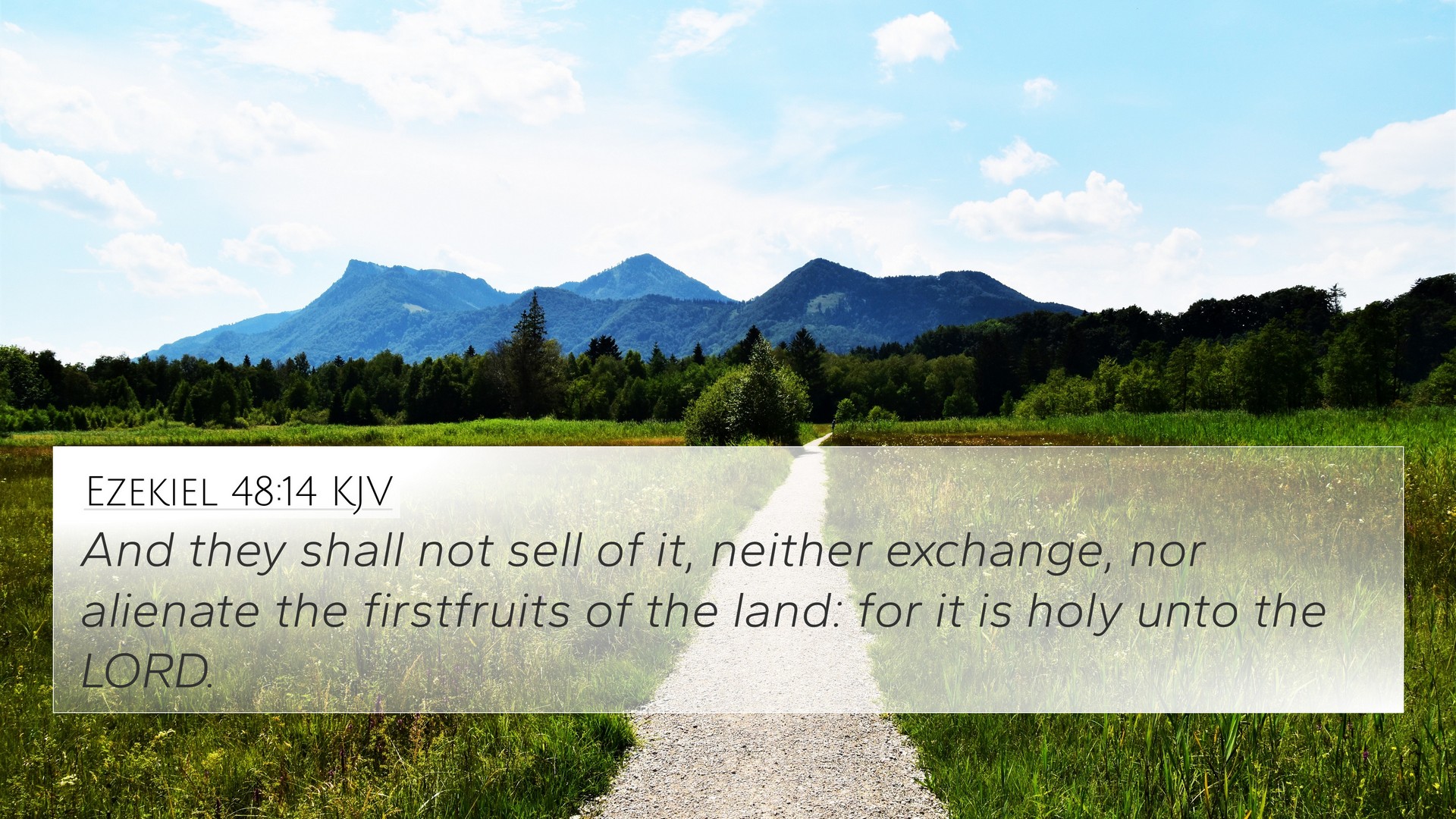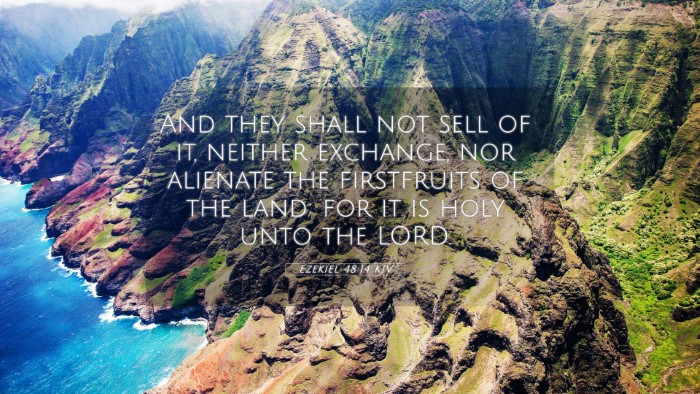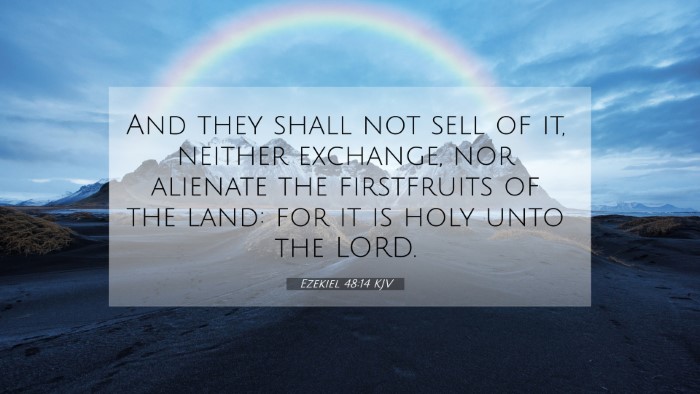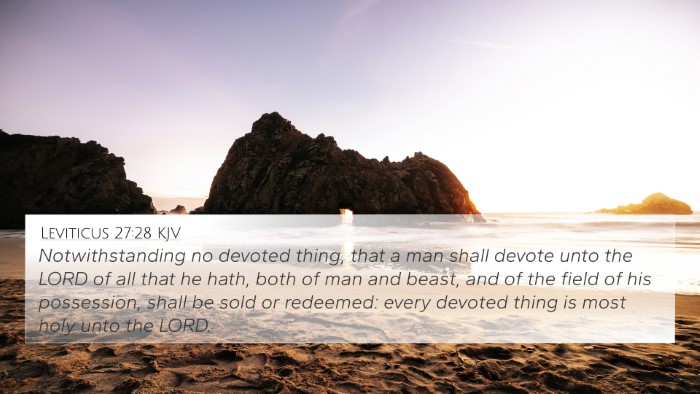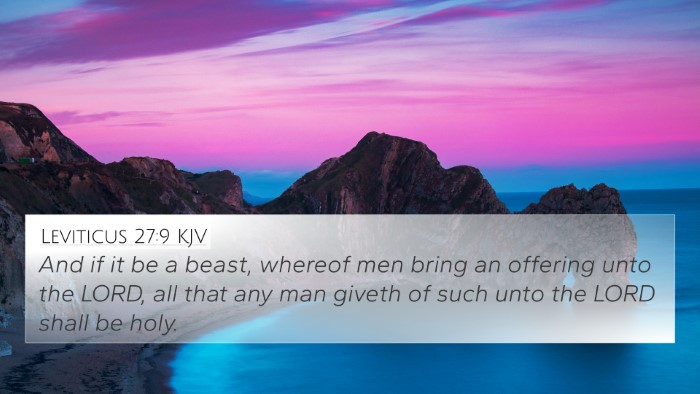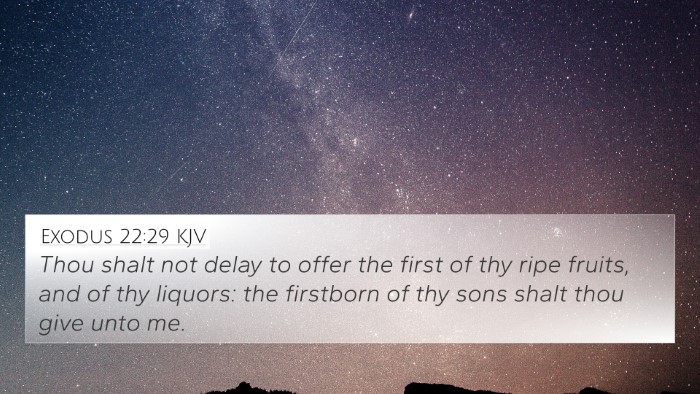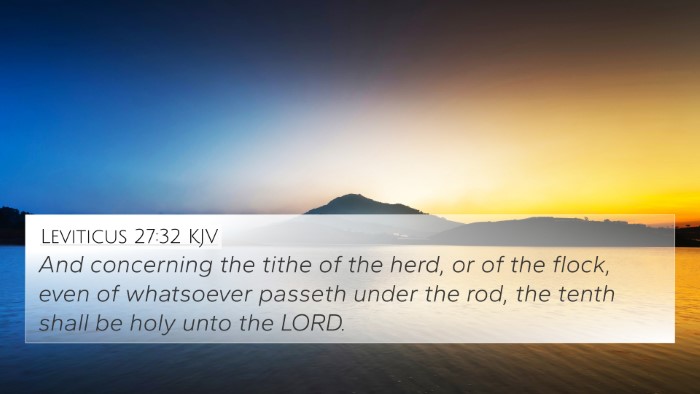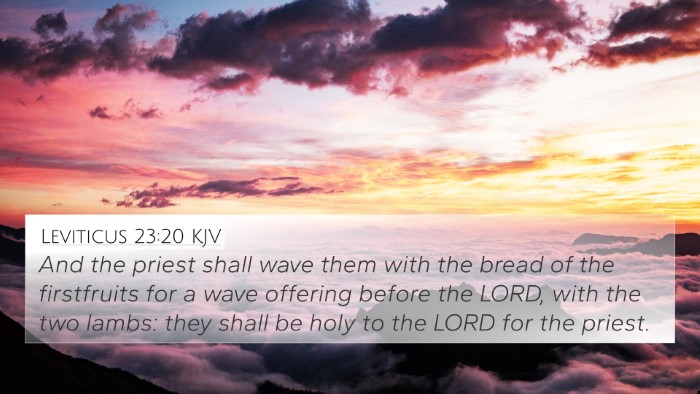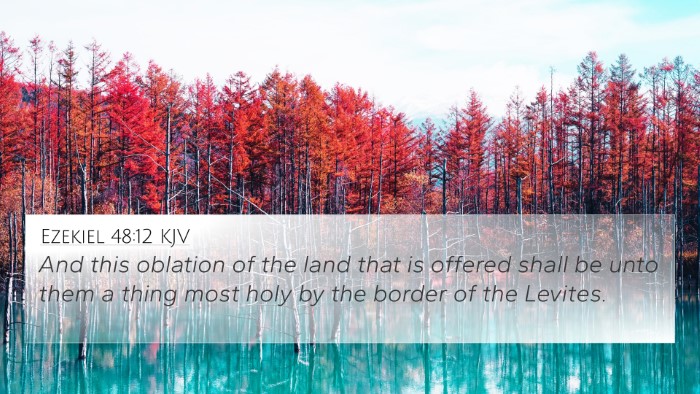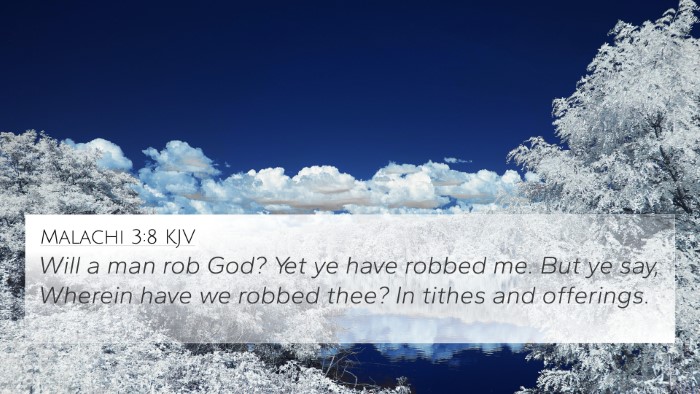Ezekiel 48:14 - Meaning and Interpretation
Bible Verse: Ezekiel 48:14
This verse reads: “They shall not sell or exchange any of it, nor shall they alienate this choice portion of land; for it is holy to the Lord.”
Summary of the Verse
Ezekiel 48:14 emphasizes the sacred nature of the land designated for the priests and highlights the prohibition against selling or exchanging it. The land is viewed as a holy gift from God, reserved for His service and purposes. This verse underlines the importance of maintaining the integrity of what is deemed holy and dedicated to God.
Interpretative Insights from Commentaries
The following insights reflect the combined interpretations from public domain commentaries:
- Matthew Henry: Henry notes that the priests' portion of the land symbolizes the spiritual blessings bestowed upon the spiritual leaders. By forbidding the sale or alienation of this land, the text calls attention to the stewardship of holy things and the need to preserve what belongs to God.
- Albert Barnes: Barnes emphasizes that the land's holiness is non-transferable; it signifies that there are specific divine mandates concerning the sacred spaces. The importance of land in the context of worship and service to God cannot be understated, as it serves as a reminder of covenantal relationships.
- Adam Clarke: Clarke elaborates that the designation of this land as “holy to the Lord” indicates a sacred separation meant to maintain a distinct identity for God’s followers. The refrain from commerce over this land emphasizes prioritizing spiritual commitments over material gain.
Bible Verse Cross-References
This verse connects to several other scriptures, illustrating its significant themes:
- Leviticus 25:23: "The land shall not be sold in perpetuity, for the land is mine..." This verse parallels the notion of land being holy and unalienable, emphasizing divine ownership.
- Numbers 18:14: "Every devoted thing in Israel shall be yours." This ties into the idea of dedicating holy things to God, relevant to the priestly role.
- Deuteronomy 18:1-2: "The priests, the Levites, all the tribes of Levi, shall have no portion..." reinforcing the idea of provision through separation for divine duties.
- Jeremiah 32:15: "For thus says the Lord of hosts, the God of Israel: Houses and fields and vineyards shall be bought again in this land." This verse contrasts the permanence of God's promises with human actions concerning land.
- Malachi 3:10: Encourages bringing the full tithe into the storehouse, deliating the importance of resources designated for God’s kingdom.
- Matthew 6:19-21: "Do not lay up for yourselves treasures on earth..." This reinforces prioritizing spiritual over material values, echoing the theme of holiness in land dedication.
- Hebrews 13:8: "Jesus Christ is the same yesterday and today and forever." It reminds us of the consistency of God's covenant, relevant in understanding why the land should remain holy.
Thematic Connections
Ezekiel 48:14 highlights themes of:
- Holiness: The emphasis on the land being holy correlates with other Biblical texts that denote places and people as set apart for God.
- Stewardship: The duty of religious leaders in managing sacred trust is a recurring theme in both Old and New Testaments.
- Covenant: This verse connects with the broader narrative of God’s covenant with His people, particularly regarding the land and its significance in worship.
Using Cross-References for Deeper Study
To effectively engage with the biblical text and its interpretations, consider the following tools:
- Bible Concordance: Provides an organized list of words and useful references for in-depth study.
- Bible Cross-Reference Guide: A helpful resource for locating thematic similarities across scriptures.
- Cross-Referencing Bible Study Methods: Techniques such as thematic study and keyword searches aid in exploring scriptural connections.
- Bible Chain References: A method to group verses that hold similar themes, aiding in comparative learning.
Conclusion
The insights derived from Ezekiel 48:14 compel readers to recognize the sanctity of what is dedicated to God while urging thoughtful stewardship of spiritual resources. As believers, understanding the implications of this verse enriches our connection to the broader biblical narrative and our relationship with God. By employing various tools for Bible cross-referencing, readers can foster a deeper understanding of Scripture, noting the intricate web of connections that enrich their faith journey.
